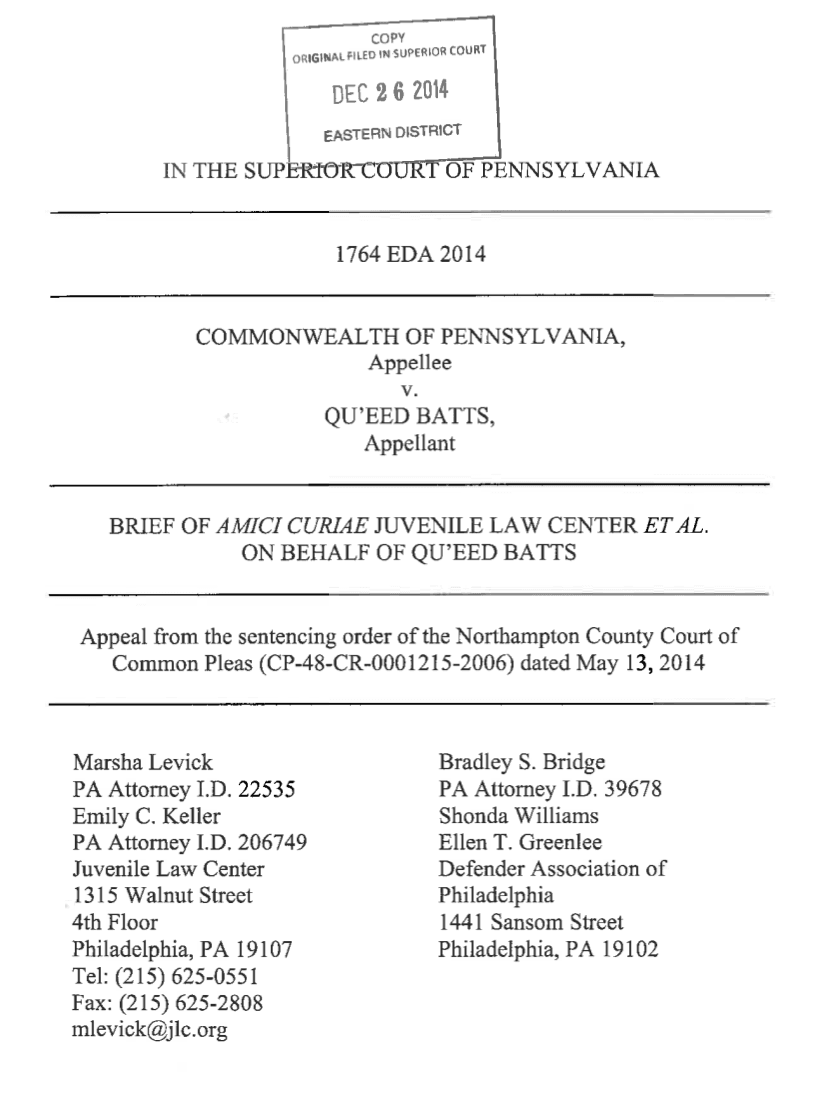
Summary of Argument
Miller v. Alabama, 132 S. Ct. 2455 (2012) held that mandatory life without parole sentences are unconstitutional for juvenile homicide offenders. Following the Miller decision, Appellant Qu’eed Batts’ mandatory juvenile life without parole sentence was vacated. At Mr. Batts’ resentencing, the sentencing court reimposed life without parole. This second life without parole sentence fails to satisfy the holding and mandated considerations of Miller, however. It, too, must be vacated.
First, in concluding that juvenile life without parole sentences after Miller must be “uncommon,” Miller, 132 S. Ct. at 2469, Miller adopts a presumption against imposing juvenile life without parole sentences. The imposition of any juvenile life without parole sentence is suspect because there is no reliable way to identify the rare juvenile whose crime demonstrates irreparable corruption and for whom a life without parole sentence might therefore be appropriate. Second, because life without parole for a juvenile is akin to the death penalty for an adult, this Court must look to death penalty jurisprudence that reserves the harshest available sentence for the most heinous and depraved homicide offenders. Objective guidance is necessary to ensure that this harshest sentence available for juvenile offenders, if ever imposed, is only imposed in the most egregious cases and only upon irreparably corrupt individuals. Because no such guidance exists, the sentence was imposed in an arbitrary and capricious manner.
Finally, Miller requires that a sentencer examine specific factors and consider how those factors counsel against sentencing a juvenile to life without parole. Miller, Graham v. Florida, 560 U.S. 48 (2010), and Roper v. Simmons, 543 U.S. 551 (2005) collectively require that the circumstances of the offense – no matter how brutal or cold-blooded – not overpower evidence of mitigation based on youth. Moreover, the characterization of these factors themselves afford juveniles a presumption of immaturity. Application of these factors to Mr. Batts’ case, together with the adolescent development research at the core of Miller, demonstrate that Mr. Batts’ actions correlated closely with his age and psychosocial development, and therefore he should not receive the harshest available sentence.
Accordingly, this Court should vacate Mr. Batts’ juvenile life without parole sentence.